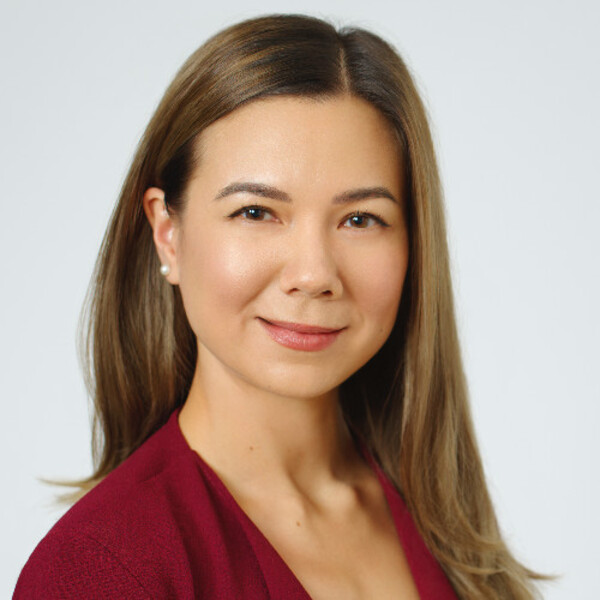Breadcrumbs
- Home
- Education
- Fellowships
- Area of Focused Competence in Addiction Medicine
Area of Focused Competence in Addiction Medicine
Areas of Focused Competence
Areas of Focused Competence (AFC) Programs are accredited by the Royal College of Physicians and Surgeons of Canada.
They provide subspecialty competency-based training for physicians who have achieved primary specialist certification in a primary discipline.
Those who successfully complete a program can apply for a diploma from the Royal College of Physicians and Surgeons of Canada and designation as DRCPSC. You would then be known nationally, and internationally, as an individual who has sought to advance their knowledge and expertise with additional complementary skills and competency.
Addiction Medicine
The University of Toronto Area of Focused Competence (AFC) in Addiction Medicine is a one-year clinical fellowship program administered through the University of Toronto’s Department of Psychiatry. This comprehensive training opportunity is open to all physicians with RCPSC certification, or eligible for same (i.e. current residents in a RCPSC residency program may complete the fellowship as an elective year, with permission from the home program, typically in PGY4 or PGY5).
Our program runs fully integrated with the University of Toronto Enhanced Skills Addiction Medicine program. Applicants from a Family Medicine background can find more information on the Department of Family and Community Medicine website.
Overview
Status: Accredited by the RCPSC. Completion of this training program leads to the added qualification of a Diploma of the Royal College of Physicians and Surgeons of Canada (DRCPSC). Successful completion of this training will also entitle trainees to a certificate of fellowship completion from the University of Toronto.
Length of Program: One Year (52 Weeks) - Full Time
Funding: For current domestic residents, through their residency program. For those who will have completed their residency program before starting the fellowship, 2-3 competitive funding packages will be offered by the Centre for Addiction and Mental Health (CAMH), Canada's largest mental health and addiction teaching hospital.

Program Director: Dr. Susan Franchuk
Contact: susan.franchuk@camh.ca
Our fellowship offers the opportunity to work with a multidisciplinary group of clinical and research faculty with expertise in addictions. Team structure varies by location, but fellows are expected to take on leadership roles, work collaboratively, and participate in a diverse range of clinical rotations at sites across the GTA including CAMH, St. Michael’s Hospital, and community sites. The training program includes exposure to the broad range of addictive disorders, and to the full continuum of care for patients with substance use and addiction.
Fellows enjoy weekly core teaching, regular journal club, rounds, and protected time for scholarly work. Fellows will also contribute to teaching of residents, medical students and other healthcare disciplines.
We strive to train leaders in addiction medicine who can deliver evidence-based clinical care and take on pressing societal challenges in policy, research, advocacy and education related to addiction medicine. We are committed to providing our fellows with the best possible training experience in order to foster their growth as addiction physicians who are patient-centred clinicians and practice in a culturally safe manner.
Eligibility and Application
Eligibility
Physicians with RCPSC certification, or eligible for same (i.e. current residents in a RCPSC residency program may complete the fellowship as an elective year, with permission from the home program, typically in PGY4 or PGY5).
We accept applications from physicians in any clinical specialty. Recent graduates have come from Psychiatry, Internal Medicine, Emergency Medicine and Obstetrics Gynecology.
Application Timeline for 2025-2026
We will accept applications via the below linked online platform from August 15, 2024 - October 15, 2024. File review will commence shortly afterwards, and candidates will be contacted for interviews to be held virtually in November 2024. Candidates will be notified of the decision by early December 2024.
Application Process
Candidates apply online at the Psychiatry Fellowship Program’s central application platform.
Interested candidates are invited to submit their updated CV, copies of their MD and specialty certificate*, a letter of intent detailing their interest in this opportunity and how it aligns with their career goals, as well as the contact information of 3 references one of whom being their Residency Program Director. Reference letters must be received by the above-listed deadline. Other requirements may apply - see below.
* In lieu, current domestic residents can submit a letter of good standing indicating their anticipated graduation date from their residency program
Candidates must review the University of Toronto Psychiatry Fellowship Program’s application requirements carefully before initiating an application. Internationally trained applicants may be asked to provide English proficiency test results at the time of application. To learn more, visit the Apply to the Fellowship Program webpage.
Contact
- General questions regarding the fellowship (any and all are welcome!): Dr. Susan Franchuk (susan.franchuk@camh.ca).
- For specific information about the application process, contact Rafal Ramzi, Psychiatry Fellowship Coordinator (psych.fellows@utoronto.ca).
Program Specifics
Call
None
Research
Scholarly project in education, policy, advocacy, QI or research
Rotations
- Inpatient addiction medicine consultation (3 blocks)
- Inpatient medical withdrawal & consultation to psychiatric ED (1 block)
- Outpatient longitudinal addiction medicine (3-4 blocks) which includes
- Rapid Access to Addiction Medicine (RAAM)
- Concurrent disorders
- Specialized clinics (problem gambling, nicotine dependence)
- Community opioid agonist (OAT) treatment (1 block)
- Residential/bed-based treatment (1 block)
- Interprofessional pain and addiction clinic (1 block)
- Inpatient & outpatient youth addiction/concurrent disorders (1 block)
- 1-month elective block (can explore areas of interest in addiction or related fields, including in other provinces/locations)
Additional Core and Elective Experiences
- Perinatal substance use clinic
- Injectable OAT and supervised consumption site
- Longitudinal “half day back” in primary specialty
- Opportunities for brief intervention and structured psychotherapies (e.g. MI, CBT for substance use/relapse prevention)
- Opportunities to pursue selectives and tailor rotations to areas of interest
